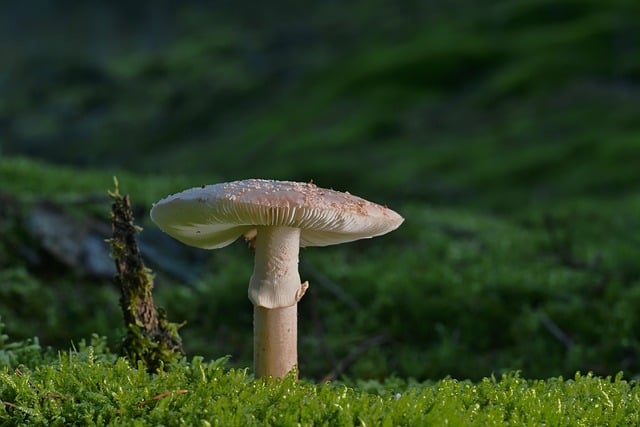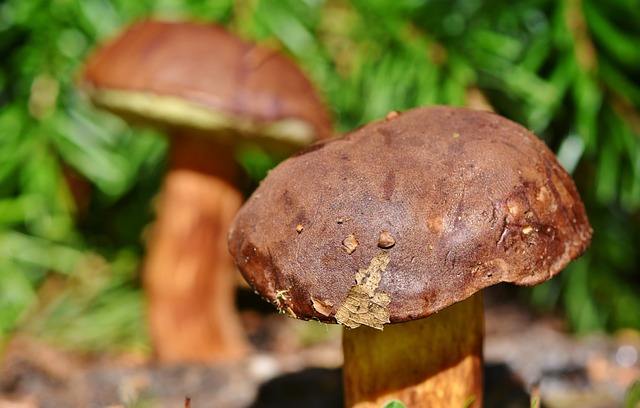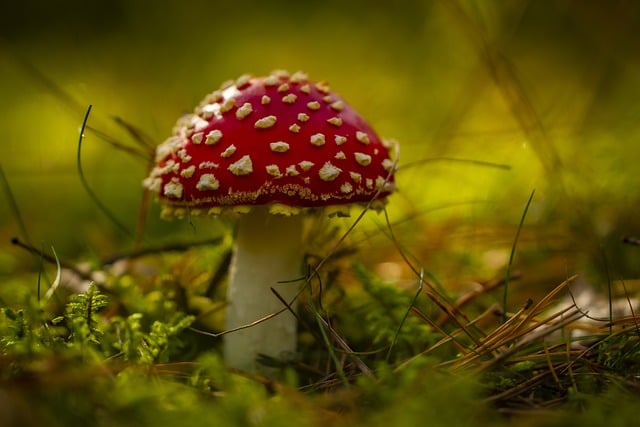Introduction
In recent years, a unique blend of coffee and mushroom-based ingredients has gained popularity worldwide, offering a caffeine-free alternative for those seeking the rich flavor and potential health benefits of coffee without the stimulating effects. Dubbed “mushroom-coffee-without-caffeine,” this emerging trend combines the energizing properties of mushrooms with the comforting familiarity of coffee, providing a novel approach to beverage consumption.
In this comprehensive article, we will delve into the world of mushroom-coffee-without-caffeine, exploring its historical context, global impact and trends, economic considerations, technological advancements, policy and regulation frameworks, challenges and criticisms, case studies, future prospects, and concluding thoughts. By the end of this journey, readers will gain a deep understanding of this innovative beverage and its significance within the broader landscape.
Understanding Mushroom-Coffee-Without-Caffeine
Mushroom-coffee-without-caffeine is a type of functional coffee that leverages the bioactive compounds found in mushrooms to provide a unique set of benefits. At its core, mushroom-coffee-without-caffeine combines the rich flavor and aroma of high-quality coffee beans with the nutritional value and potential health advantages of mushroom-derived ingredients.
Historically, mushrooms have been used for centuries in traditional medicine practices across various cultures, including Asian and European folk remedies. The modern iteration of mushroom-based beverages emerged in the early 2000s as a response to consumer demand for healthier, more sustainable alternatives to traditional coffee and energy drinks.
Global Impact and Trends
Mushroom-coffee-without-caffeine has gained significant traction globally, with key markets including North America, Europe, Asia Pacific, and Latin America. The beverage’s popularity is driven by the growing awareness of its potential health benefits, such as:
- Improved cognitive function
- Enhanced immune system response
- Anti-inflammatory properties
- Increased energy levels (without the stimulating effects of caffeine)
Regional trends and market dynamics are influenced by factors such as cultural preferences, consumer behavior, and regulatory environments. For instance, North America has seen a surge in demand for mushroom-based beverages, driven largely by the growing wellness movement.
Economic Considerations
The economic landscape surrounding mushroom-coffee-without-caffeine is characterized by:
- Growing market potential: Estimated to reach $1.4 billion by 2025
- Increasing competition: Multiple brands and products vying for market share
- Shift towards sustainable production: Consumers prioritizing eco-friendly practices
Investment patterns are shifting towards companies focusing on innovation, quality control, and strategic partnerships.
Technological Advancements
Significant technological advancements have enabled the development of mushroom-coffee-without-caffeine. Key innovations include:
- Mushroom cultivation techniques for improved yield and quality
- Advanced extraction methods for efficient bioactive compound recovery
- Sustainable packaging solutions reducing environmental impact
These advancements have streamlined production, reduced costs, and enhanced product consistency.
Policy and Regulation
Policymakers are adapting to the emergence of mushroom-coffee-without-caffeine by:
- Establishing regulatory frameworks: Governing the production, labeling, and marketing of mushroom-based beverages
- Developing industry standards: Ensuring quality control and product safety
Regional variations in policy and regulation exist, with some countries adopting a more permissive approach while others maintain stricter guidelines.
Challenges and Criticisms
Despite its growing popularity, mushroom-coffee-without-caffeine faces challenges and criticisms related to:
- Quality control: Ensuring consistent taste, texture, and bioactive compound levels
- Sustainability: Minimizing environmental impact through eco-friendly practices
- Regulation: Navigating changing regulatory landscapes and ensuring compliance
To overcome these issues, stakeholders must prioritize transparency, quality assurance, and environmentally responsible production methods.
Case Studies
In-depth case studies demonstrate the successful application of mushroom-coffee-without-caffeine in various settings:
- “Mushroom Mocha” at a popular coffee shop chain
- A small-batch artisanal producer focusing on locally sourced ingredients
- A global food and beverage company incorporating mushroom-based beverages into their product line
These case studies highlight the adaptability of mushroom-coffee-without-caffeine to diverse market segments.
Future Prospects
The future outlook for mushroom-coffee-without-caffeine is promising, with potential growth areas including:
- Increased demand for functional beverages
- Expanding product lines and flavors
- Continued innovation in production processes
Emerging trends and strategic considerations will drive the development of this beverage category.
Conclusion
In conclusion, mushroom-coffee-without-caffeine has established itself as a significant player in the global beverage market. This comprehensive article has explored its historical context, global impact and trends, economic considerations, technological advancements, policy and regulation frameworks, challenges and criticisms, case studies, future prospects, and concluding thoughts.
By understanding the nuances of mushroom-coffee-without-caffeine, readers will be better equipped to navigate this evolving market and capitalize on its potential for growth and innovation.
FAQ Section
Q: What are the key benefits of mushroom-coffee-without-caffeine?
A: Potential health benefits include improved cognitive function, enhanced immune system response, anti-inflammatory properties, and increased energy levels without stimulating effects.
Q: Is mushroom-coffee-without-caffeine a new trend?
A: No, the concept has been around for centuries in traditional medicine practices. The modern iteration emerged in the early 2000s as a response to consumer demand for healthier alternatives.
Q: Who is driving the growth of mushroom-coffee-without-caffeine?
A: A mix of consumers seeking functional beverages and companies investing in innovation, quality control, and strategic partnerships are driving market growth.
By addressing these common questions, we hope to provide clarity and enhance reader engagement with this comprehensive article on mushroom-coffee-without-caffeine.

Embrace Focus and Vitality with Mindful Mushroom Coffee
Mushroom coffee, enriched with adaptogens like cordyceps, reishi, and lion's mane, serves as a…….
Read More
Harnessing Clarity and Calm: The Natural Power of Mushroom Coffee Without Caffeine
Mushroom coffee is a growing trend in the wellness industry that offers mental clarity and calmness…….
Read More
Mushroom Coffee: Fueling Focus and Energy Naturally
Mushroom coffee stands as a health-focused, caffeine-free alternative to traditional coffee, offeri…….
Read More
Energize Naturally: Discovering Mushroom Coffee’s Focus-Enhancing Benefits
Mushroom coffee is a health-focused alternative to traditional coffee that provides energy and focu…….
Read More
Energize Your Dawn: The Benefits of Mushroom Coffee for Vigor and Focus
Mushroom coffee has become a popular and health-focused alternative to traditional coffee, offering …….
Read More
Maximizing Focus and Vitality with Mushroom Coffee: A Caffeine-Free Energy Boost
Mushroom coffee is a wellness beverage that offers a stimulating and focused energy boost without th…….
Read More